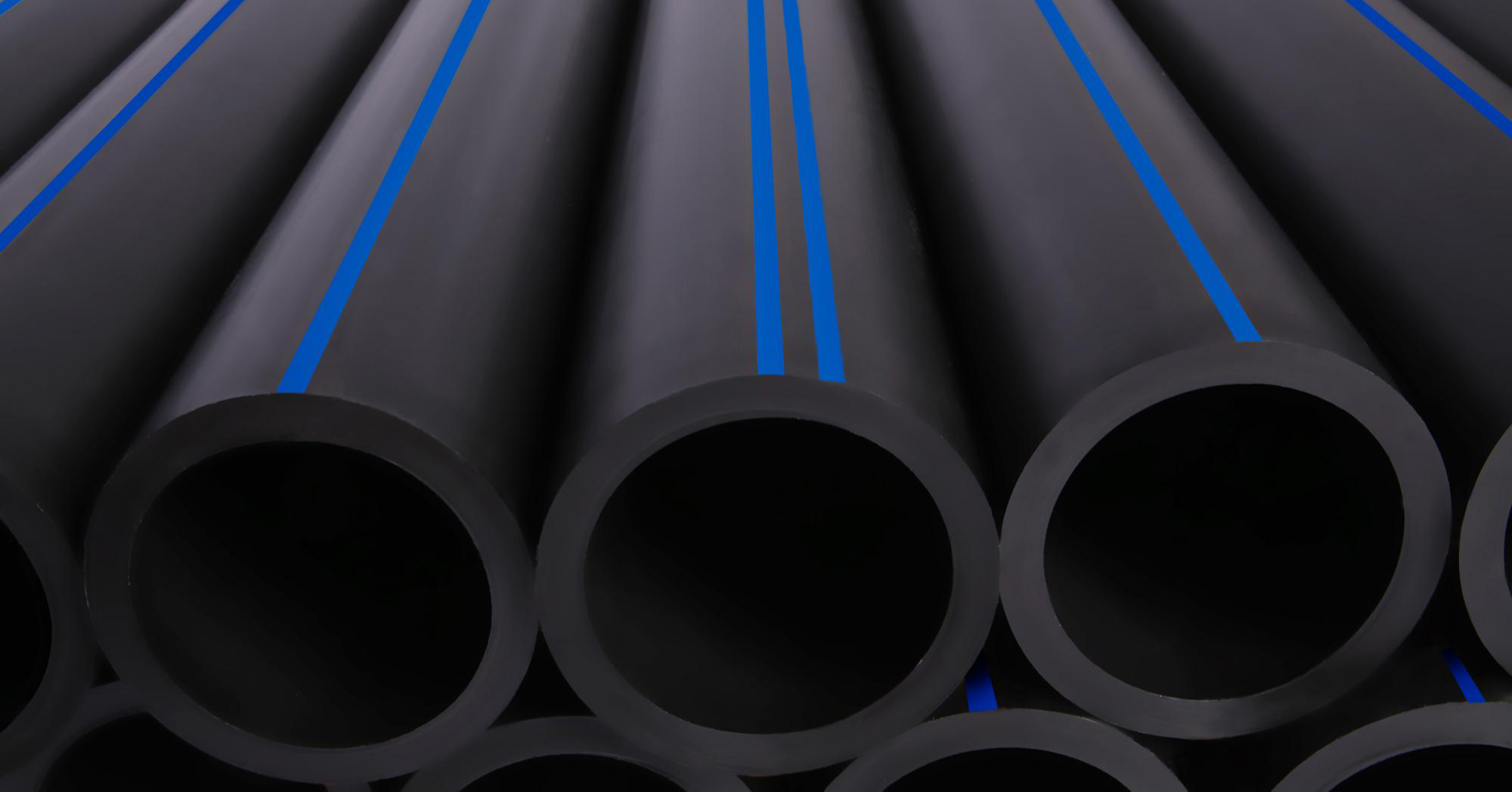Common Questions About Texas hdpe pipe manufacturer and What They Offer
Comprehending the Key Perks of HDPE Pipe for Water and Wastewater Administration
Making use of HDPE pipeline in water and wastewater monitoring presents many benefits that merit consideration. Its extraordinary toughness and lengthy life-span make it a preferred selection for lots of tasks. Additionally, the material's resistance to deterioration and chemical damages enhances its dependability in numerous settings. Nonetheless, the advantages expand past simply longevity and resistance. Exploring its cost-effectiveness and ecological impact exposes a lot more engaging factors for its widespread fostering in modern infrastructure
Extraordinary Resilience and Longevity

HDPE pipe stands apart for its extraordinary toughness and long life, making it a recommended selection in water monitoring systems. Constructed from high-density polyethylene, these pipes can withstand considerable stress and stress and anxiety, making certain reputable efficiency over time. Their robust nature enables them to endure extreme environmental problems, consisting of temperature changes and soil activities, which can create other materials to stop working.
The lifespan of HDPE pipelines usually goes beyond 50 years, providing an affordable solution for districts and markets alike. Furthermore, the product's light-weight properties simplify installation, lowering labor expenses and timeframes. This longevity lessens the need for regular fixings or replacements, even more improving its financial appeal.
In water management applications, the integrity of HDPE pipelines means less interruptions and improved solution continuity, making them important to lasting infrastructure development. The mix of resilience and durability solidifies HDPE's function as a cornerstone in effective water administration options.

Resistance to Rust and Chemical Damages
While many products succumb to rust and chemical damage gradually, HDPE pipelines exhibit remarkable resistance, making them optimal for various water management applications. This strength stems from the molecular structure of high-density polyethylene, which is inherently non-reactive and does not rust like steels or break down from exposure to severe chemicals. Therefore, HDPE is very reliable in environments with aggressive materials, such as wastewater systems that may have acids, bases, and organic solvents.
Furthermore, HDPE pipelines can endure ecological elements such as soil level of acidity and saline problems, further boosting their suitability for diverse applications (Pipe Manufacturing Midland TX). Their capacity to keep architectural stability with time reduces the threat of leakages and failures, which is critical in making sure the safety and reliability of water circulation and wastewater management systems. Consequently, the resistance to deterioration and chemical damages considerably adds to the total effectiveness and long life of HDPE piping services
Cost-Effectiveness and Economic Benefits
When taking into consideration the financial ramifications of water administration systems, the cost-effectiveness of HDPE pipes comes to be apparent. These pipelines provide lower installment and maintenance expenses compared to typical products like metal or concrete. Their light-weight nature streamlines transportation and installation, resulting in lowered labor costs. Additionally, HDPE pipes exhibit a long life-span, usually going beyond 50 years, which equates to less substitutes and long-lasting financial savings.
Additionally, the resistance of HDPE to deterioration and chemical damages reduces the requirement for costly repairs and replacements. The pipes also sustain efficient water flow, lowering energy expenses linked with pumping systems. By alleviating leaks and water loss, HDPE pipelines contribute to significant financial benefits for communities and industries alike. On the whole, the first financial investment in HDPE piping can generate considerable financial returns over the life expectancy of the water management system, making it a sensible choice for lasting facilities development.
Ecological Sustainability and Decreased Influence

Convenience and Flexibility in Setup
Due to their distinct residential properties, HDPE pipes use remarkable adaptability and adaptability in installation, making them appropriate for a vast array of applications. Their lightweight nature enables simpler handling and transport, decreasing labor expenses and installment time. HDPE pipelines can be bent and shaped to fit various terrains and task requirements, which is especially helpful in testing environments.
Additionally, their resistance to corrosion and chemical damage enables setup in diverse settings without the requirement for specialized protective finishes. The capacity to websites fuse joints develops a continual, leak-free system, boosting the overall integrity and dependability of the installment. HDPE's adaptability additionally suits ground activity, lowering the threat of damages in locations vulnerable to moving dirt. Overall, these qualities make HDPE pipes not only flexible however likewise a preferred choice for water and wastewater management systems.
Frequently Asked Questions
Just How Does HDPE Pipeline Contrast to PVC in Water Administration Applications?
HDPE pipe offers superior versatility, resistance to rust, and toughness contrasted to PVC. Its lighter weight helps with simpler installation, while its long life-span minimizes Related Site replacement expenses, making HDPE a recommended choice in water management applications.
What Is the Life-span of HDPE Piping Under Normal Conditions?
Under regular problems, HDPE pipes can have a life expectancy ranging from 50 to 100 years. Their resilience and resistance to corrosion add to their lasting performance in numerous applications, making them a dependable choice for infrastructure.
Are HDPE Piping Recyclable After Their Solution Life?
Yes, HDPE pipelines are recyclable after their life span. Midland TX HDPE Pipe Fittings in Stock. They can be refined and repurposed into new products, substantially reducing ecological impact and advertising sustainability within the industry, making them an environmentally friendly selection for piping solutions
What Is the Installment Process for HDPE Water Lines?
The installment process for HDPE pipelines entails site prep work, trenching, pipe fusion or mechanical joining, backfilling, and stress screening. Proper methods assure a resilient and reliable system for transporting water and wastewater successfully.
Can HDPE Piping Be Used for Both Drinkable and Non-Potable Water Equipments?
Yes, HDPE pipelines can be used for both potable and non-potable water systems. Their adaptability, durability, and resistance to corrosion make them suitable for different applications, making certain safe and efficient transport of water in different contexts.